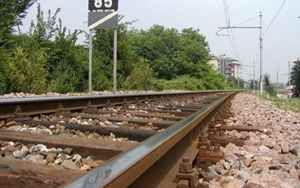(Finance) – Un “Atlas of soft mobility in Italy” developed on big data to relate railway stations, cycle paths, paths, trails and greenways with the historical, artistic and naturalistic heritage present throughout the national territory. It is the initiative promoted by Italian Railway Network (FS Italiane Group) and from the 29 associations that make up theAlliance for Sweet Mobility (A.MO.DO.) to contribute to slow mobility and encourage sustainable tourism.
The three-year protocol signed by RFI and AMODO will allow the experimentation of a new formula of collaborative geography, based on digital technologies, to map stations, cycle and pedestrian paths, villages, parks and historical assets to build a model of sustainable, integrated and widespread mobility on the territory, in support of tourism and the local economy and inland areas, giving continuity to the collaboration started a year ago. The activities carried out during the first year concerned the study, survey and integration of information on infrastructures, identification of “hub of sweet intermodality” functional to the interchange services between trains, bicycles and paths, the sharing of databases and the use of the respective information systems GIS (Geographic Information System) of the active and soft mobility networks and of the places of attraction located throughout the territory, correlated to the rent station grid.
The Atlas contains a precious collection of information, useful for orienting oneself among the countless sites of historical and cultural interest in the vicinity of the stations. A practical dissemination tool also able to guide assessments, choices and solutions of Institutions and Local Bodies (Regions, Provinces, Park Bodies, etc.) in the development of soft mobility in their territories. It is the first compendium of its kind to comprehend in an integrated way the network of paths, cycle paths, tourist railways, parks, villages, historical assets and landscape beauties present throughout Italy.
There first edition of the Atlas of Sweet Mobility in Italy, forthcoming, contains the mapping of the more than 3 thousand active railway stations (of which about 2 thousand of RFI), of the 28 active or planned tourist railway lines (for about 1,300 km), of the approximately 900 villages of the networks belonging to AMODO (Flags Arancioni, Authentic Italian Villages, Cittaslow, Virtuous Municipalities, Most Beautiful Villages in Italy), of the approximately 12,000 km of paths (CAI Path Italy and the FIE international paths), of the 83 paths (for a total of about 23,000 km ), of the 1,656 protected areas for a total of about 100 thousand km2 (24 National Parks, 147 National Nature Reserves, 134 Regional Nature Parks and Regional Nature Reserves, 68 SCIs and 610 SPAs, 171 Other Protected Natural Areas, 112 WWF Oasis, 3 Parks Natural Submerged and 27 Marine Protected Areas, 66 ReMI Mining Parks), of the 55 Unesco sites (for about 5,700 km2), of the approximately 18 thousand km of greenways and cycle paths, existing and planned (37 greenways, 3 Eurovelo itineraries, 10 Tourist Cycleways he National, 20 Bicitalia itineraries).
To all these networks, there are 50 local railway lines in operation of extraordinary beauty that cross the internal areas and the Italian territories, which have been named by RFI and AMODO as “Landscape lines” to be proposed for slow tourism.
There collaboration between RFI and AMODO is aimed at disseminating a new tool in favor of active mobility, a backbone of rail transport networks, to work to create services for soft intermodality in stations and territories, stimulating multimodal and multicultural travel experiences.
The initiative intends to support the relaunch of local, slow and sustainable tourism which sees rail transport and stations as protagonists in rediscovering and enhancing the excellence of an Italy rich in territorial, landscape and cultural peculiarities.
